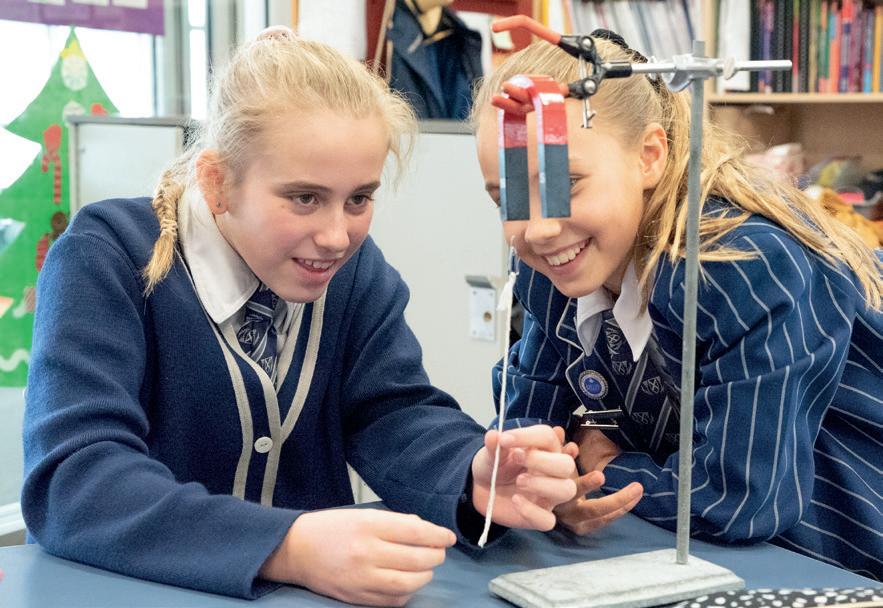
3 minute read
Senior Syndicate
The Senior Reading programme was improved during the year with a better balance achieved between Reading Plus and the other instructional reading programmes. The benchmark tests were very useful alongside e-asTTle, running records and other in-house tests that were used to quantify achievement.
There was a very pleasing level of collaboration between the Secondary School Mathematics and Science Departments. This led to some effective in-service courses as well as the development of units of work. These units will need to be ‘bedded-in’ but the teaching and learning programmes were enhanced at the Senior Syndicate level consequently.
Advertisement
With the valued support of the ICT Department, student problems with one-to-one computing were significantly minimised. Correspondingly, the student management of their devices and subsequent storage of data was significantly enhanced. The filing structure for student machines was standardised across Year 8, leading to very few losses of work during the year. ‘Microsoft Teams’ became the organisational and communication hub for the Senior Syndicate during the year; this was a steep learning curve, however, student learning communications, presentations, and shared resources were significantly enhanced, particularly in the 1:1 computing domain. The Senior Syndicate has agreed formats for the structure of OneNote which means students have a consistent approach across year groups irrespective of the teacher.
The highly structured writing approach of Stephen Graham is now well established in the Senior Syndicate and produced pleasing results during the year, both in the measured gains in student writing, but also improved outcomes.
Wilj Dekkers continued to work with the Year 7–8 classes on computational and algorithmic thinking. His workload shortened the extent of this involvement during 2019 but there is a planned continuation of this focus for 2020 in order to embed the new Digital Technologies curriculum.
conversations. These areas were part of the appraisal process.
Student leadership continued to expand in the syndicate, particularly at the Year 8 level with 80 per cent of the year group holding leadership roles.
Mary Leota, in Year 8, has become a lead teacher of Te Reo in the Preparatory School, and along with Pip Dinsenbacher they promote kapa haka and Te Reo school wide. All Senior Syndicate classes had Te Reo tuition and incorporated the language into their daily programmes.
The Joy Alcock method of teaching spelling has been embedded across the syndicate as a consistent and structured approach. Along with the Learning Support Department this produced more consistent results, particularly for those students who have difficulty in this area.
Development of the students critical thinking was a focus for the Year 8 teachers during the year as well as the quality of student/teacher The Academy Philosophy Conference was again a useful adjunct to the Year 8 programme, and the challenging forum provided the opportunity to interact with a wide range of schools across the Canterbury region. The Ethics Olympiad was also entered for the first time and involved students from Years 7–10.
The Senior Syndicate production was another unqualified success –Stories from The Stage involved all the classes from Years 7–8 and played over four nights to full houses creating powerful memories for many students.
Finally, as the retiring Senior Syndicate leader I can only add what a privilege it has been to work with such a team of dedicated and hardworking teachers over the years, which has in large part established St Andrew’s College Preparatory School as one of the most desirable schools in the country. The students have been a delight to teach: their attitudes, friendliness, courtesy, individual achievements and progress makes St Andrew’s College such a rewarding school to be part of. It is gratifying to retire from a school in such good heart and with the honoured name of St Andrew’s College.
David Farmer Head of Senior Syndicate






